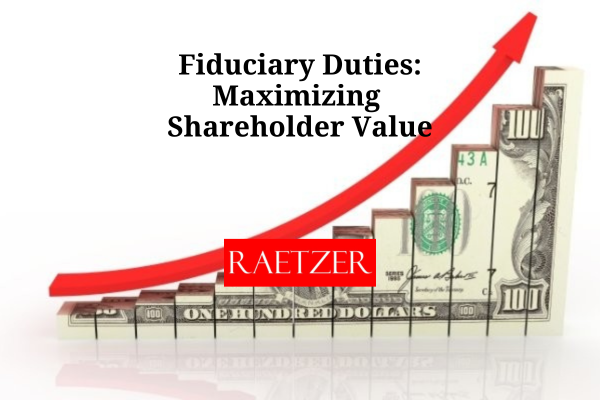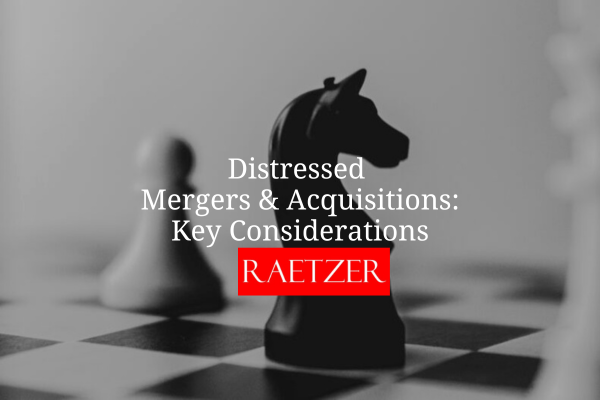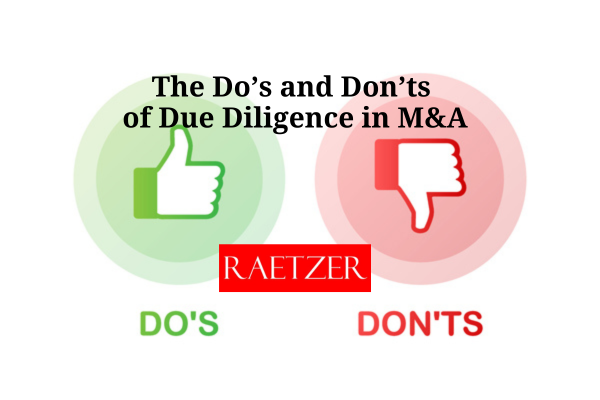When selling your company, you owe special fiduciary duties to minority investors or other shareholders. Directors, officers and other individuals who control a company (“control persons”) have certain baseline fiduciary responsibilities toward shareholders. For the purpose of ease we’ll discuss this under Delaware law (check with a local attorney if dealing with an entity formed in a different state) —widely regarded as the benchmark for corporate governance in the U.S.—these responsibilities are applied differently in the context of mergers and acquisitions (“M&A”).
To understand fiduciary duties in M&A transactions, it’s essential to familiarize yourself with the three standards of review that Delaware courts use to evaluate decisions made by control persons:
- The Business Judgment Rule
- Enhanced Scrutiny
- Entire Fairness
1. The Business Judgment Rule
The business judgment rule presumes that control persons act:
- On an informed basis,
- In good faith, and
- In the honest belief that their actions are in the best interests of the company.
This default standard in Delaware protects control persons from judicial second-guessing if their decisions can be attributed to any rational business purpose. In essence, courts defer to the judgment of control persons unless there is evidence of a serious flaw in the decision-making process.
To benefit from the protections of the business judgment rule, control persons must inform themselves of “all material information” reasonably available before making a decision. However, shareholder plaintiffs can challenge this presumption by alleging:
- Undisclosed conflicts of interest,
- A majority of conflicted or interested control persons,
- Gross negligence, or
- Lack of good faith, such as willful disregard of relevant facts or failure to exercise reasonable oversight.
When this standard applies, courts generally do not evaluate the wisdom of decisions unless flaws in the process are proven.
2. Enhanced Scrutiny
Enhanced scrutiny applies when control persons are selling the company. Under this standard, courts assess:
- The adequacy of the decision-making process, including the information used, and
- The reasonableness of the actions taken in light of the circumstances at the time.
Here, the burden shifts to control persons to prove they were adequately informed and acted reasonably. However, “reasonable” does not mean “perfect.” If a control person selects one of several reasonable alternatives, courts will generally not second-guess the decision, even if hindsight suggests another choice might have been better.
In the landmark case Revlon, Inc. v. MacAndrews & Forbes Holdings, Inc., the Delaware Supreme Court established that when the sale of a company becomes inevitable, control persons must seek the highest value reasonably available to shareholders. This is commonly referred to as “Revlon duties”.
A subsequent case, Paramount Communications Inc. v. QVC Network Inc., further clarified that:
The consequences of a sale of control impose special obligations on the directors of a corporation. They must act reasonably to secure the best value reasonably available to stockholders.
While Revlon duties are not an independent fiduciary duty, they represent a specific application of baseline fiduciary responsibilities in the context of a company sale. These duties do not mandate a rigid approach but require actions judged reasonable based on the circumstances.
It’s important to note that certain stock-for-stock transactions, as opposed to cash sales, may not trigger Revlon duties because they do not constitute a change in control.
3. Entire Fairness
The entire fairness standard applies when control persons have conflicts of interest, such as being on both sides of a transaction. This is the most stringent standard under Delaware law. Control persons must prove:
- Fair Dealing: Demonstrating that decision-making was informed, properly structured, and appropriately timed, with approvals obtained from disinterested parties.
- Fair Price: Showing that the financial terms of the transaction fall within a range of values a reasonable seller would accept.
Conflicts triggering the entire fairness review typically arise in scenarios like:
- A controlling shareholder engaging in a “going-private” transaction.
- A personal financial benefit derived by control persons that is not shared proportionately by all shareholders.
To mitigate risks associated with the entire fairness review, companies often implement procedural safeguards, such as:
- Forming a special committee of disinterested and independent directors to oversee the transaction.
- Requiring approval by a majority of the minority shareholders.
In M&A transactions, control persons face heightened scrutiny to ensure that shareholder interests, especially those of minority investors, are protected. The applicable standard of review—business judgment, enhanced scrutiny, or entire fairness—depends on the nature of the transaction and the control persons’ role within it. Adhering to these fiduciary duties is critical for navigating the complexities of selling a company while maintaining compliance with Delaware corporate law.




